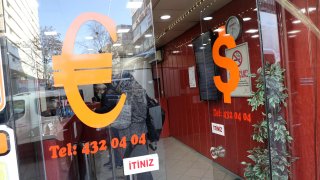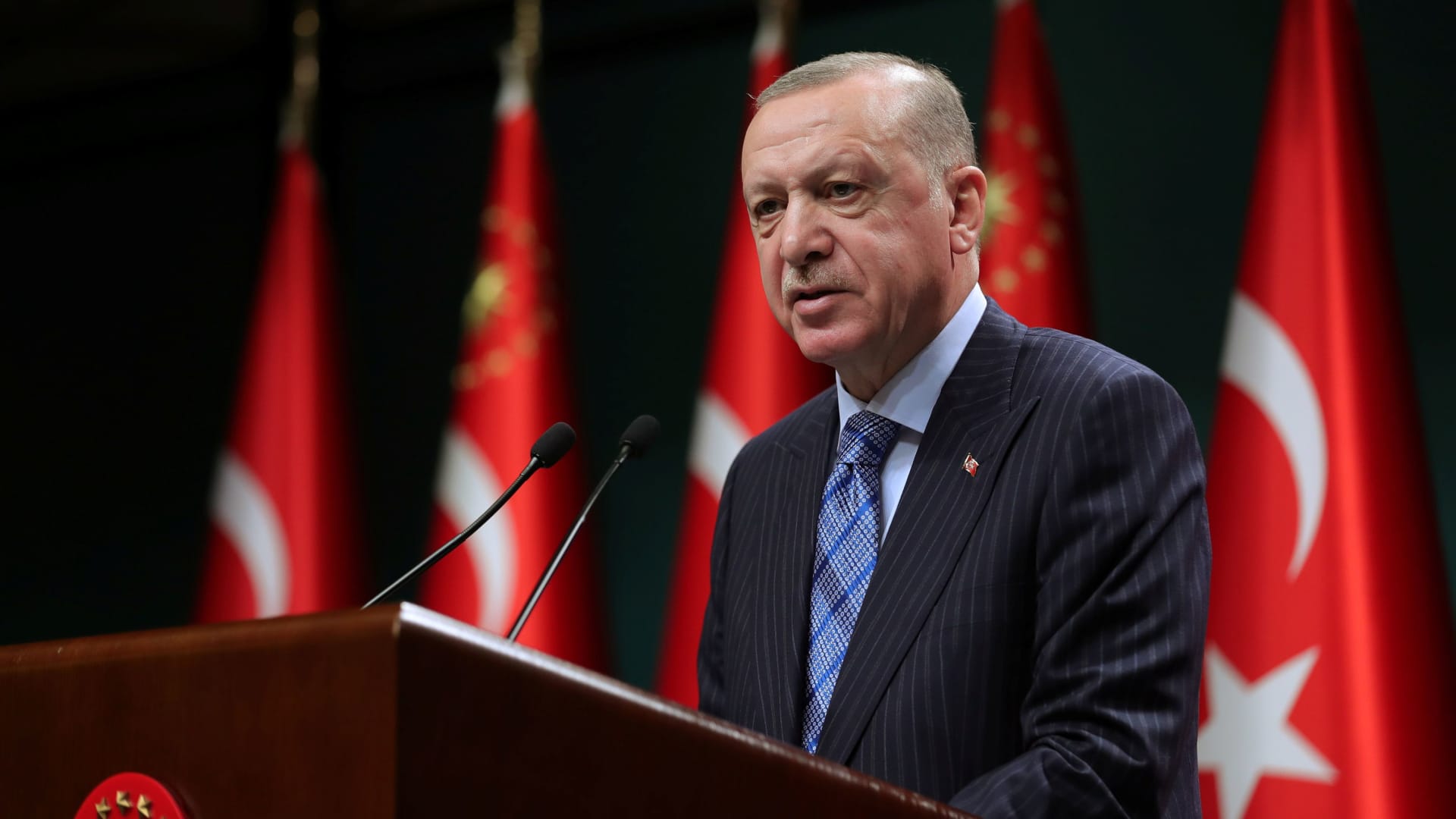
- The battered currency fell as low as 8.88 to the dollar, a 4% drop, later recouping some losses to trade at around 8.59 as markets closed in Istanbul.
- Investors have expressed concerned about what they see as the Turkish central bank’s lack of independence from Erdogan, who has said that interest rates are “the devil.”
- With inflation having been stuck in the double digits for more than three years now, investors and analysts broadly agree that Turkey needs to keep rates high to prevent prices from spiraling out of control.
The Turkish lira hit a historic low on Wednesday, triggered by President Recep Tayyip Erdoan's call for lower interest rates in the country where inflation is more than 17%.
The battered currency fell as low as 8.88 to the dollar, a 4% drop, later recouping some losses to trade at around 8.59 as markets closed in Istanbul.
Speaking to Turkish state television Tuesday night and referring to a discussion with his recently appointed central bank governor, Erdogan said: "I even spoke to the central bank governor today — we certainly need to lower interest rates. For that, we need to see July, August for interest rates to start coming down." He added that lower rates would ease pressure on investments.
Get top local stories in Southern California delivered to you every morning. >Sign up for NBC LA's News Headlines newsletter.
The comments sent more jitters through Turkish markets, making the already weak lira ever more vulnerable. Investors are concerned about the central bank's lack of independence from Erdogan, who has said that interest rates are "the devil" and holds the unconventional belief that cutting them will reduce inflation — the opposite of what most economists say is the case.

"If we remove the burden of interest rates from investments and costs, then we will enter a calmer environment because it's the interest rates that cause cost inflation," Erdogan said.
Money Report
With inflation having been stuck in the double digits for more than three years now, investors and analysts broadly agree that Turkey needs to keep rates high to prevent prices from spiraling out of control. Imports and many basic goods are far more expensive for ordinary Turks than they were a year ago; this time last year, a dollar bought roughly 6.8 lira. Now it buys nearly 8.6.
The remark was just the latest in a series of comments, political maneuvers and policy decisions by the Turkish president that's induced investor fears and weakened the lira.
But Turkish Central Bank Governor Sahap Kavcioglu — the fourth central bank chief hired in two years after Erdogan sacked the first three — reportedly contradicted the comment. According to two unnamed sources cited by Reuters, Kavcioglu told investors that talk of early rate easing was "meaningless" and that inflation would calm down in the third or fourth quarter of this year.
The central bank was not immediately available to comment when contacted by CNBC.
'Already large external vulnerabilities'
Whether those reassurances will hold is yet to be seen; analysts watching the country aren't convinced.
Yesenn El-Radhi, a senior sovereign analyst at Capital Intelligence Ratings, cited "several reversals" in Turkey's monetary policy in recent years and what he saw as the central bank's "low autonomy."
Erdogan's rate-cut demand will exacerbate the country's "already large external vulnerabilities" and further hurt investor sentiment, he was quoted as telling Reuters on Wednesday.
Citi also forecast "further losses" for the currency due to higher inflation risk and rapidly depleting foreign exchange supply, thanks in part to more expensive imports and the central bank's strategy of selling dollars to prop up the lira.
So far, Kavcioglu has held Turkey's key interest rate at the steep 19% that his predecessor Naci Agbal had increased it to. It is widely suspected Kavcioglu has been hired for his tendency to agree with Erdogan's monetary policy views.
Since Erdogan's firing of Agbal in mid-March, the lira has lost 16% of its value.
Experts watching the country seem just as baffled as many investors are about Wednesday's comments.
"Not sure what people are supposed to believe," said Timothy Ash, emerging markets strategist at Bluebay Asset Management.
"Erdogan does an interview yesterday and says he spoke to Kavcioglu and rates will fall from July and August. Kavcioglu now goes against the boss, saying no early cut?"






